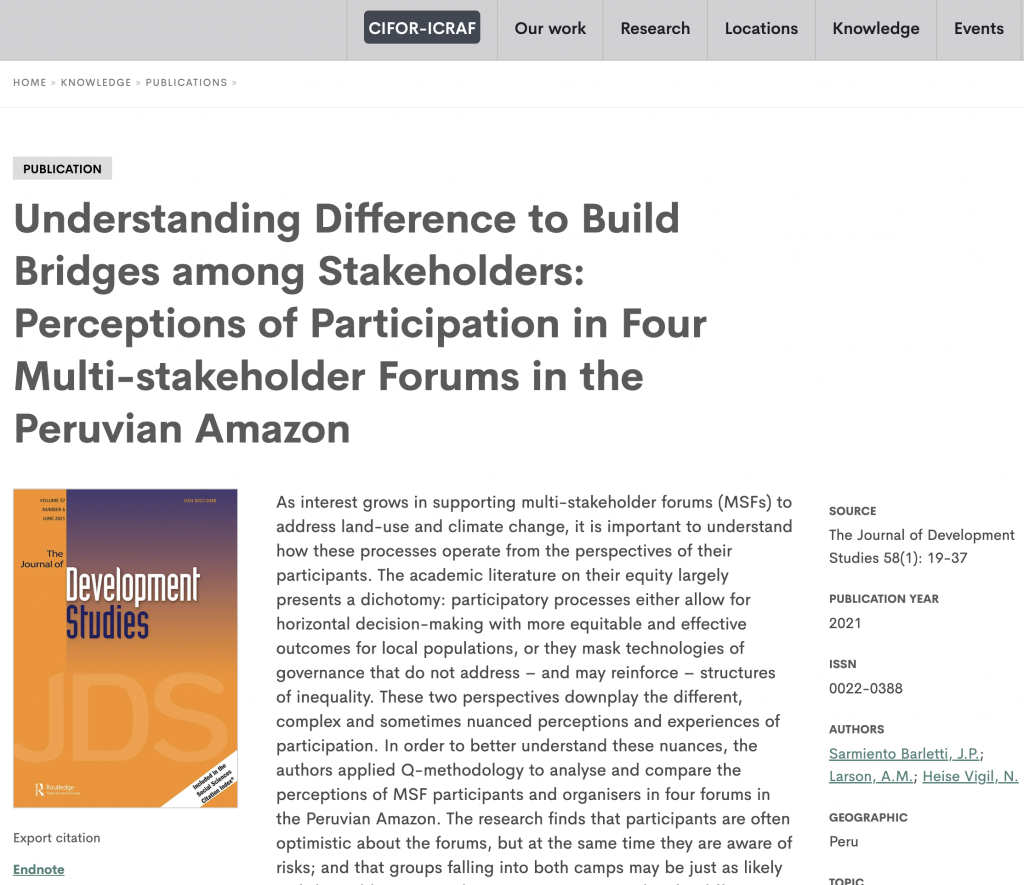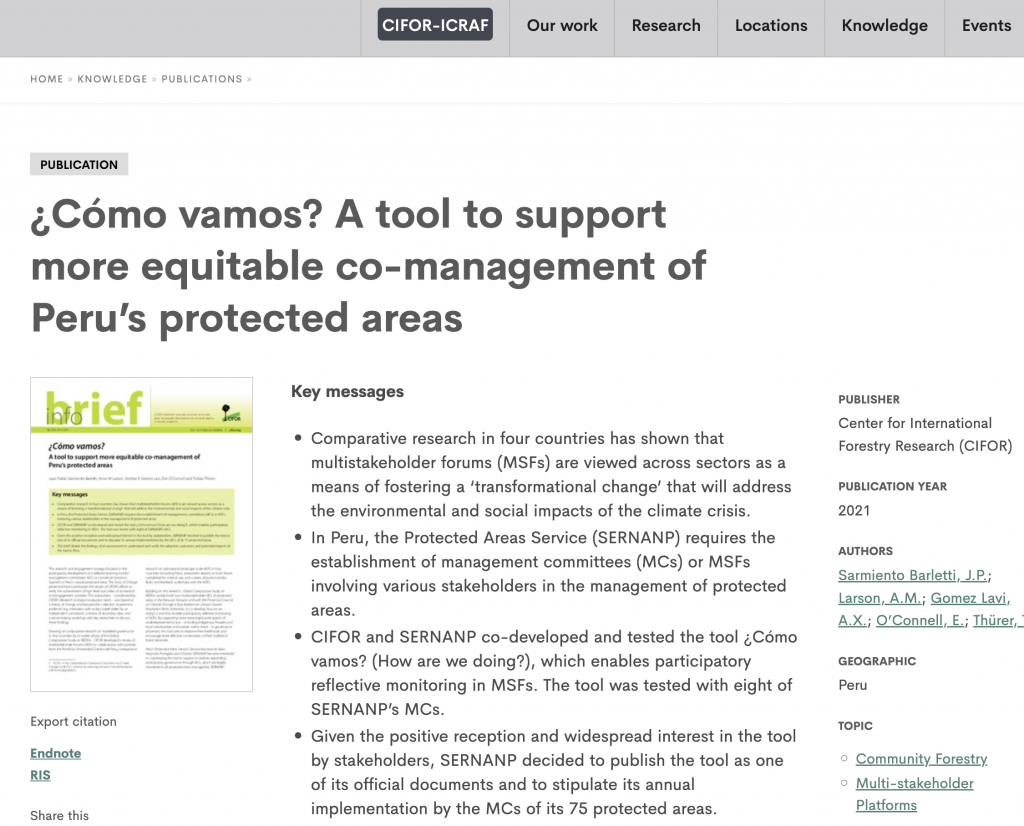
¿Cómo vamos? A tool to support more equitable co-management of Peru’s protected areas


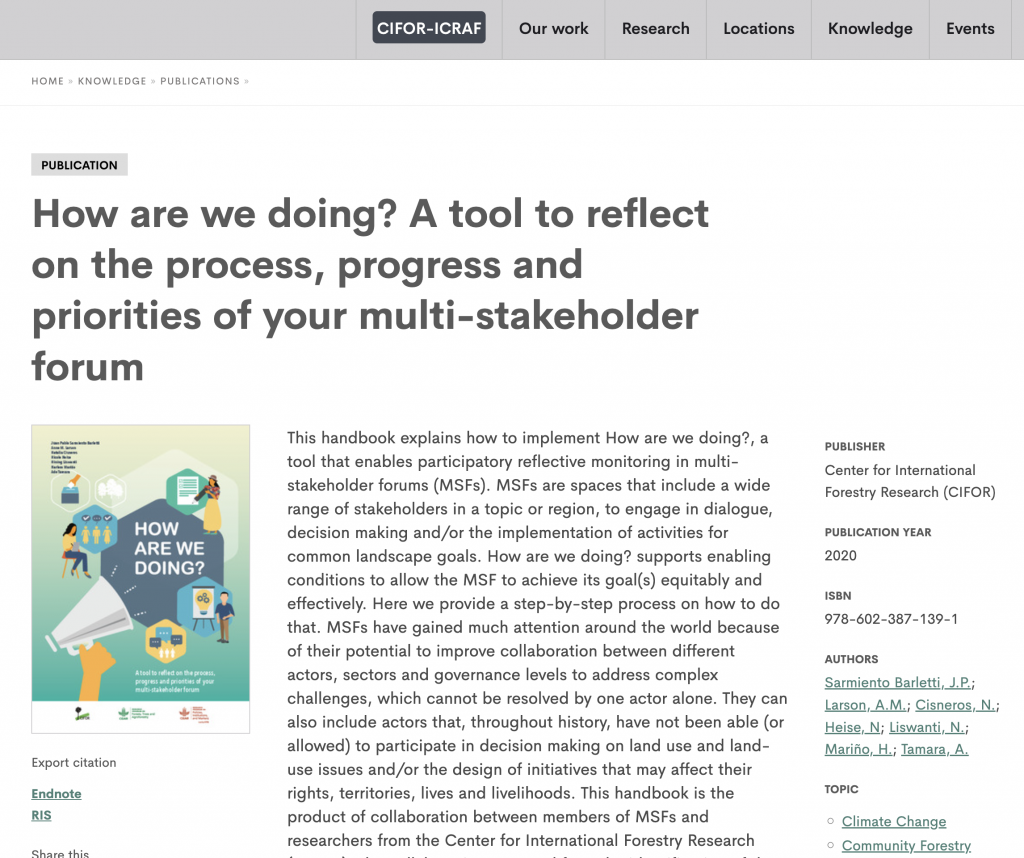
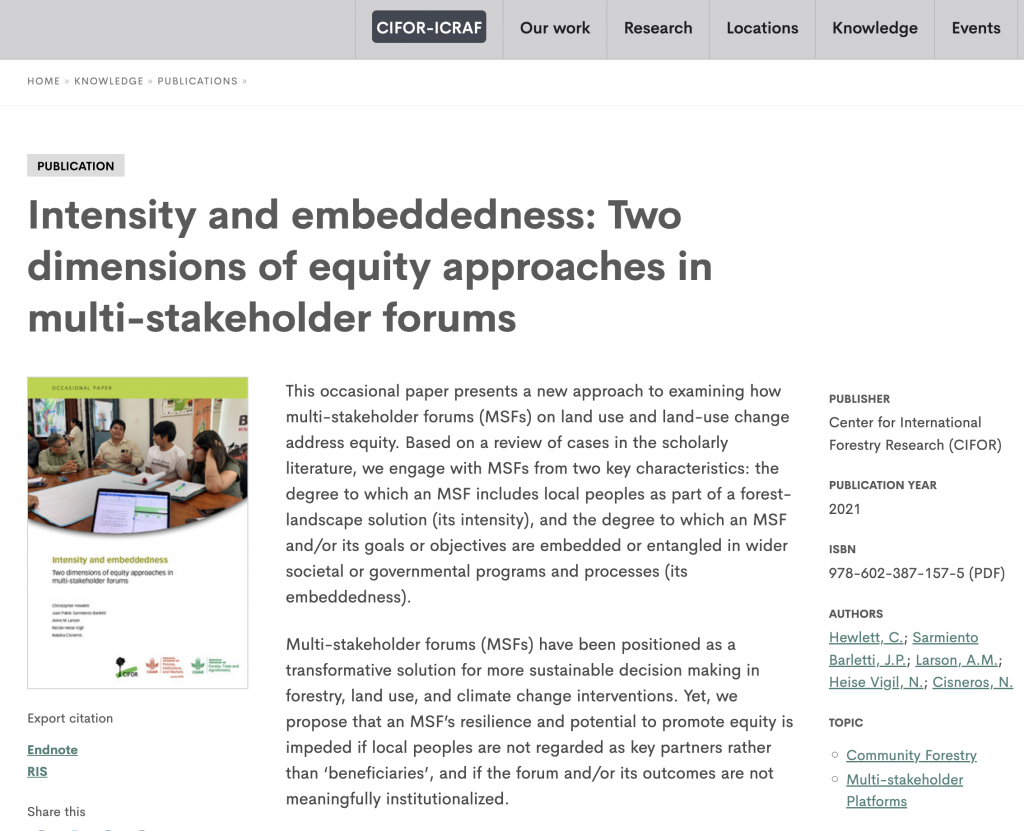
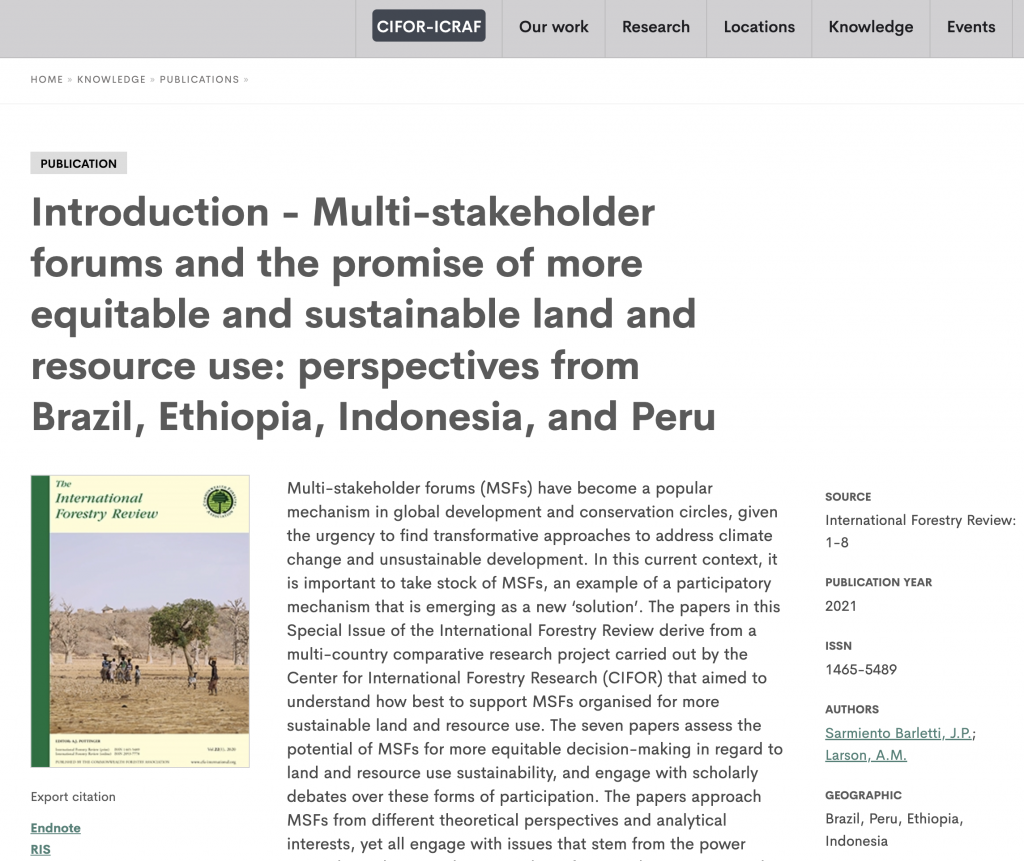
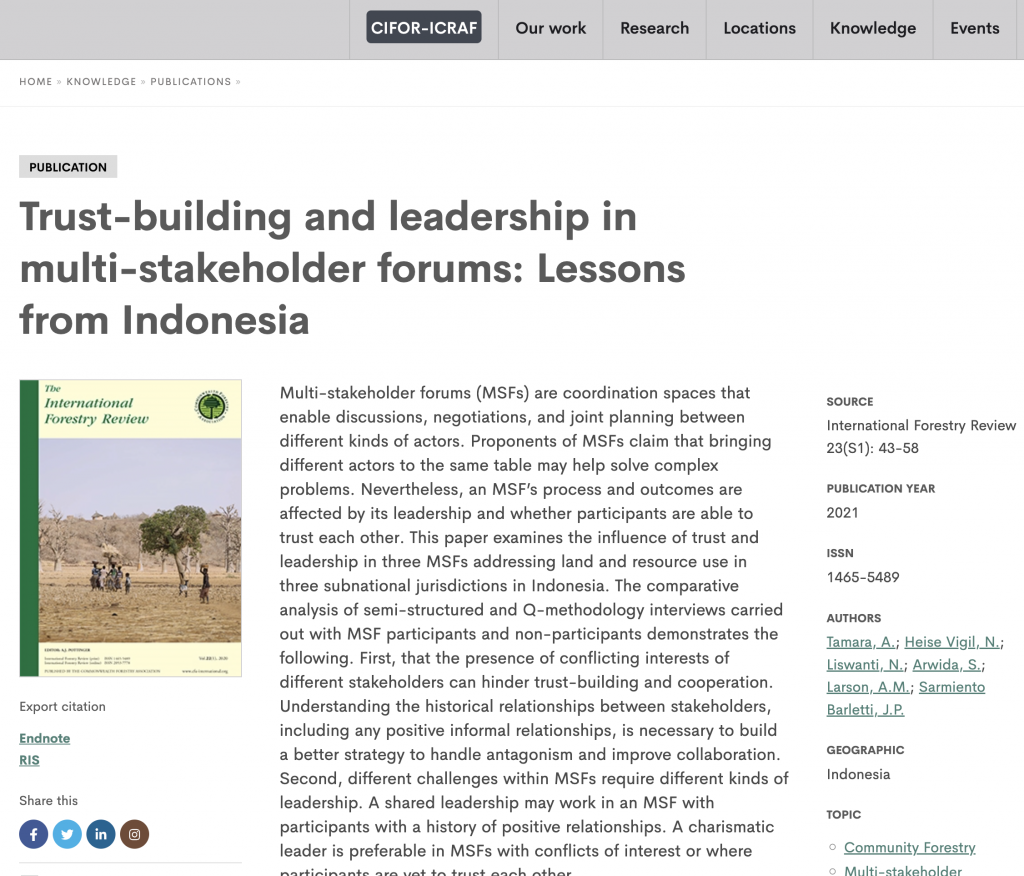
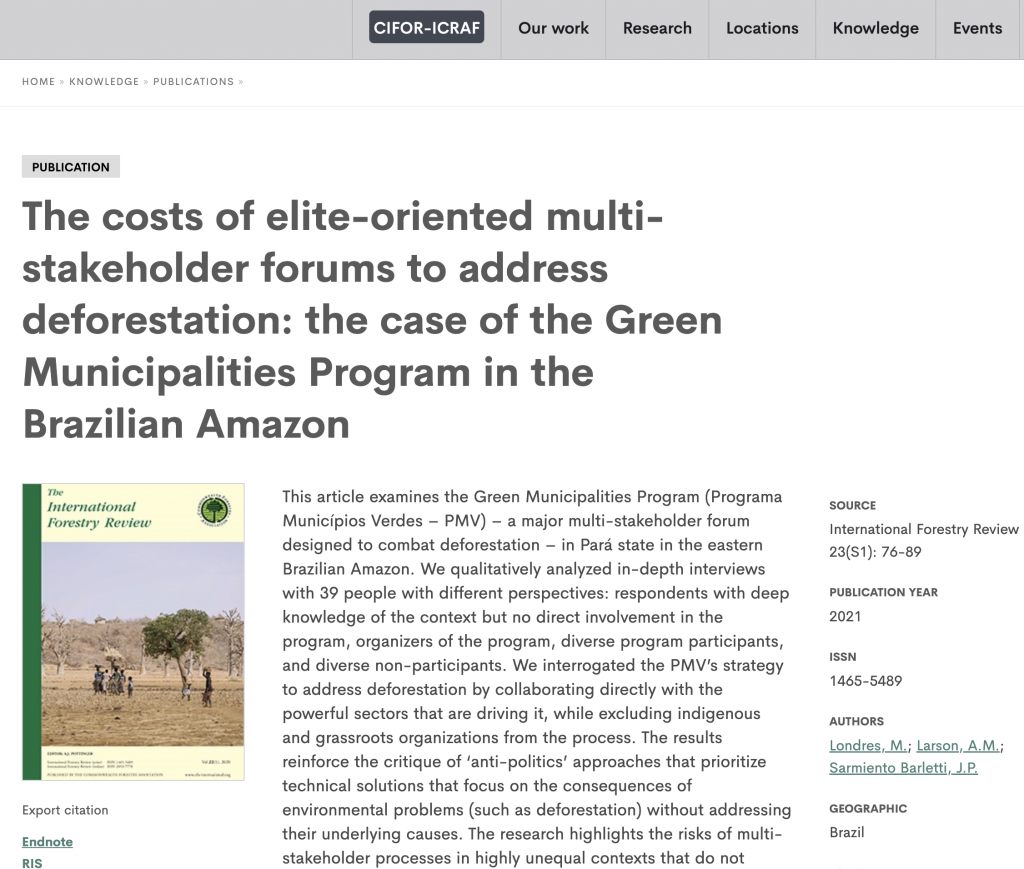
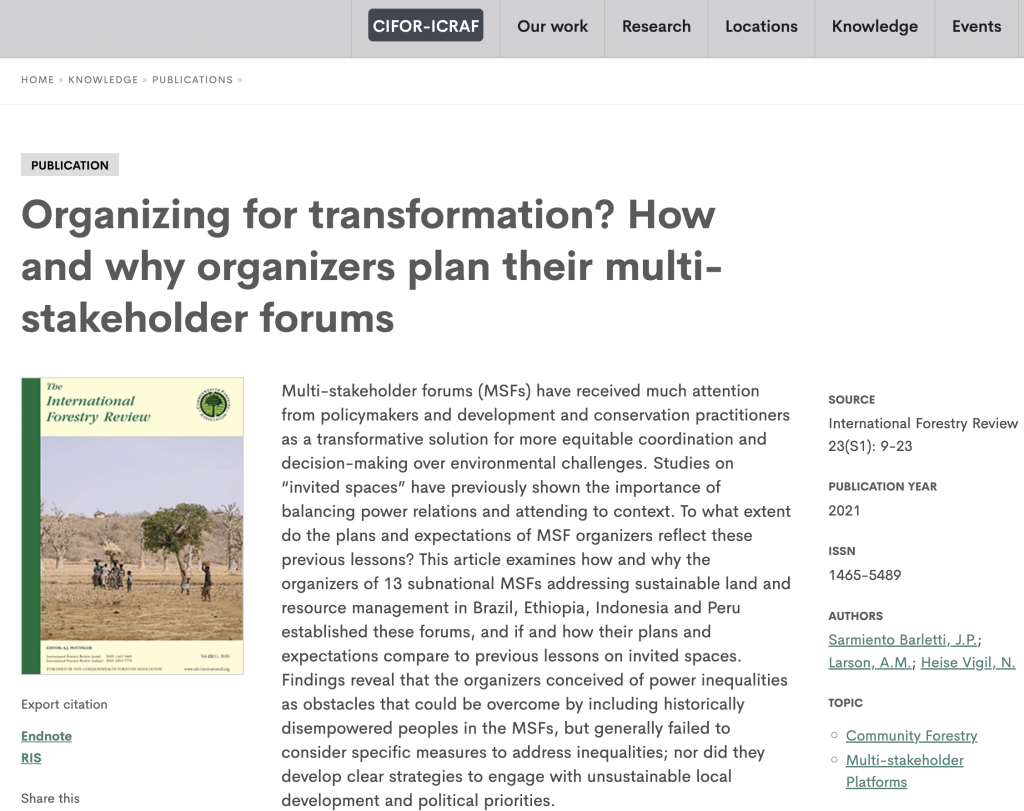
This study analyses the perspectives of participants and organizers in Peruvian Amazon multi-stakeholder forums (MSFs) using Q-methodology. It reveals nuanced perceptions, highlighting optimism, risk awareness, and challenges in addressing inequality. The findings offer insights for constructing more effective and equitable MSFs.
